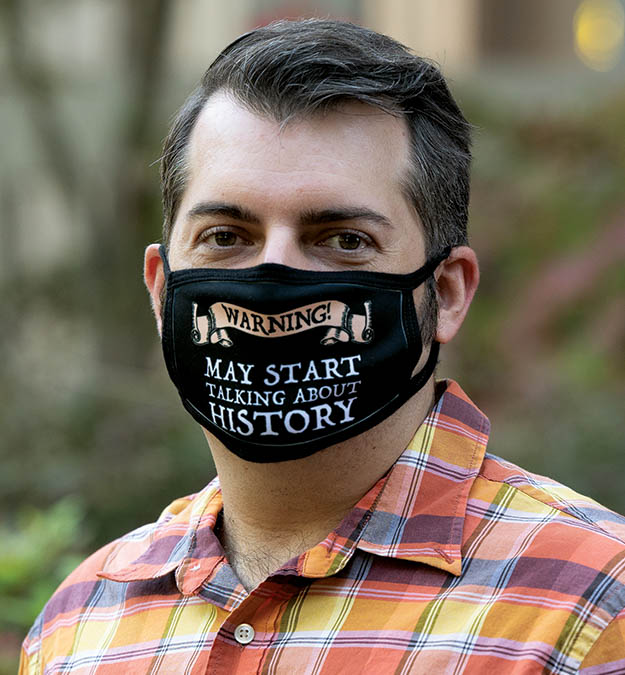Because of his research expertise in pandemics, Harding magazine asked Associate Professor of History and Political Science David Adams to provide a historical perspective on COVID-19.

When I first started studying pandemics 15 years ago, scholars were predicting a future flu pandemic.
Diverse strains had produced three pandemics in the previous 100 years, with the 1918-19 flu pandemic earning the distinction of the deadliest pandemic in recorded history.
By 2005 it was clear that when the next pandemic hit, two things would be dramatically different. For one, we were further removed from death than those who lived in the early 20th century. Even during the height of the pandemic in 1918, major belligerents were more focused on the Great War. By the start of the next century, though, major warfare, industrial accidents and childhood mortality looked all but conquered in the developed world, and most took for granted the security of a long, healthy life.
In a second related theme, despite incurable ailments like cancer and AIDS, people had placed an inordinate amount of faith in medicine. Researchers even talked about overcoming death. But those who studied pandemics cautioned that medicine would not provide a quick fix. As COVID-19 plays out, we have rapidly seen that faith shaken to a point where some no longer trust the experts. The problem with pandemic diseases is that the novelty exists not only for our bodies’ immune systems but also for our minds. Starting from a disadvantaged position, we are left playing catch up.
In many ways today’s advice echoes that of more than 100 years ago: wash your hands, don’t touch your face and wear a mask. But pandemics reach beyond the individual and affect our communities. Individual desires and beliefs war with love for and commitment to others, and when the wrong side emerges victorious, consequences can be deadly. Past pandemics show that after the storms passed, these new habits were unlearned. History doesn’t repeat itself, but the failures of past generations reemerge. And each time that happens we are given a unique opportunity to end those cycles by choosing a different path.